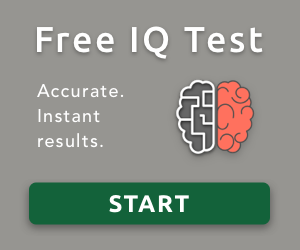Deductive vs Inductive Reasoning
Reasoning is a systematic thought process that derives a conclusion from perceptions, thoughts, or affirmations (Johnson-Laird, 1999). Reasoning informs problem solving and decision making (Vo & Casapó, 2020) and some authors have contended that evolutionary processes might have selected for two main types of reasoning (Jung, 2014): 1) a process of which reasoners are aware of and 2)another of which they are almost unconscious about (Johnson-Laird, 1999).
Jung (2014) proposes that these cognitive systems can be equated with hypothesized neural mechanisms: deductive reasoning is likely to rely upon explicit or conscious knowledge, while the improvisation (here more associated with inductive reasoning) may rely more upon implicit or unconscious knowledge systems (Helie and Sun, 2010).
The interaction of explicit and implicit systems can be seen to form the basis of effective, adaptive problem-solving in a world where people have to solve both common and novel problems (Jung, 2014).
Deductive reasoning, what might be called a “dedicated intelligence”, refers to the ability to solve predefined problems that often involve well-established rules (Cosmides and Tooby, 2002) and models (Johnson-Laird, 1999) – like learning to play an instrument, solving a puzzle or many of our mundane life tasks like deciding your shopping list. Generally speaking, these tasks are rule-based and deterministic (Jung, 2014). Another way to explain this would be “theory leads to practice”, where knowledge of theoretical principles is applied correctly to solve problems.
Inductive reasoning, which can be referred to as “improvisational intelligence” addresses the ability to improvise solutions to novel problems (Cosmides and Tooby, 2002) with contingencies that may or may not repeat themselves in different circumstances – like figuring out how to get into your house, having locked your keys inside (Jung, 2014).
When you have the same problem, for example assembling a piece of furniture from a Swedish brand:
- Deductive reasoning is your ability to look at the instructions, and correctly interpret and implement them
- Inductive reasoning is your ability to figure out how to assemble said furniture without instructions
Both types of reasoning are different and complement each other: neither is necessarily “better” than the other.
About the author
Helena Martins is a Researcher and Professor in the area of Human Resources Management. She has trained in the field of Psychology as well as Management and currently lectures in Lisbon, Portugal. Her research and teaching interests are the development of soft skills for crisis and change situations where solid psychological assessment is key as a starting point for efficacious interventions.
ORCID / Research Gate / Ciência Vitae
References:
Johnson-Laird, P. (1999). Deductive reasoning. Annual Review of Psychology, 50, 109-135.
Vo, D & Casapó, B. (2020). Development of inductive reasoning in students across school grade levels. Thinking Skills and Creativity, 37, 100699
Jung, R. (2014). Evolution, creativity, intelligence, and madness: “Here Be Dragons”. Frontiers in Psychology, 5(784) 1-3. doi: 10.3389/fpsyg.2014.0078
Helie, S., and Sun, R. (2010). Incubation, insight, and creative problem solving: a unified theory and a connectionist model. Psychol. Rev. 117, 994–1024. doi: 10.1037/a0019532
Cosmides, L., and Tooby, J. (2002). Unraveling the enigma of human intelligence: evolutionary psychology and the multimodular mind. in R. J. Sternberg and J. C. Kaufman(Eds) The Evolution of Intelligence, 145–198. Mahwah, NJ: Erlbaum

